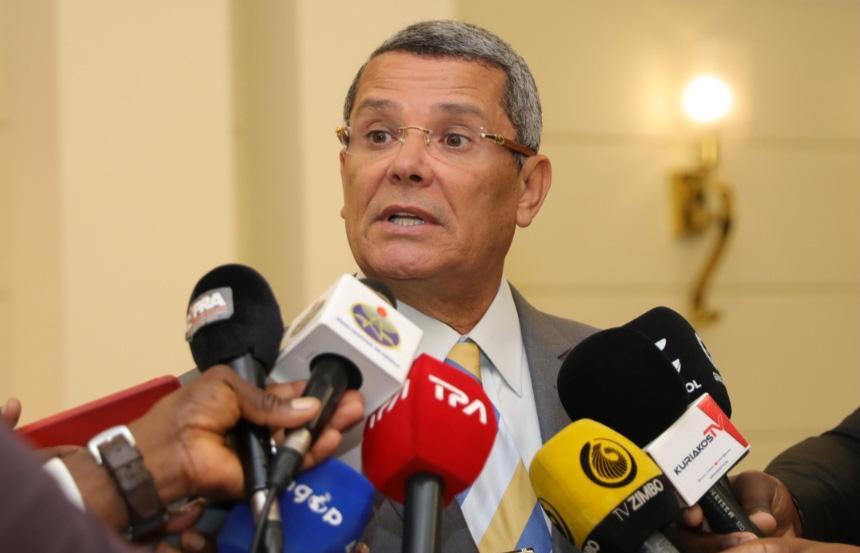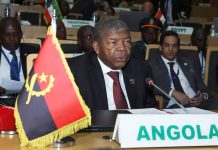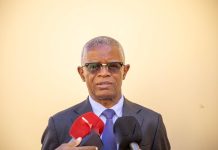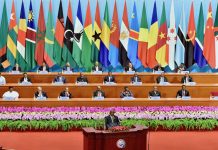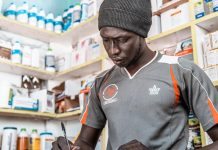Africa-Press – Angola. Angola will soon establish an Anti-Doping Disciplinary Council (CDA) with an “absolutely independent” character, to adapt to the standards required by international regulations.
The creation of this independent body is a requirement of the World Anti-Doping Agency (WADA), within the framework of the Proposed Law on Anti-Doping in Sport approved this Monday by Parliament’s specialized committees.
The diploma, which had already been approved by the legislative body in March 2024, returned to the “house of laws” because there was some misalignment between what was foreseen in the legislation and what was required in international regulations.
This is a slight adjustment to misalignments that can lead to international sanctions, including the exclusion of national athletes from international competitions and the loss of opportunities for international sporting events.
According to the reasoning, the Anti-Doping Disciplinary Council (CDA) must be guaranteed functional, administrative and financial autonomy, as well as its “absolutely independent” character.
The technical-legal body will have powers to decide on disciplinary infractions arising from violations of anti-doping rules, either in the first instance or on appeal.
According to the Minister of Youth and Sports, Rui Falcão, WADA demands that the proposal for the creation of the Anti-Doping Disciplinary Council must be the responsibility of the ministerial department that oversees sport.
He clarified that this is not a specific case for Angola, but an equal regulation for all countries in the world that are part of the Olympic cycle.
“There is no exception and no desire from the world organization to interfere in the internal legal issues of countries, we, as members of that organization, are the ones who have to conform to them and that is what we did”, he assured.
Rui Falcão also explained that any sanction applied by the Anti-Doping Disciplinary Council (CDA) will not have interference from anyone, hence the term “absolutely independent” required by WADA.
Angola was not sanctioned
The Minister of Youth and Sports clarified that Angola was not sanctioned by the World Anti-Doping Agency (WADA), but it would run that risk if it had not approved Law No. 1/24, “even knowing that there could be some failure”.
He recalled that the only embarrassment that occurred in this entire process was at the African Games, which due to a lack of communication between WADA and the Organizing Committee meant that Angola would not be able to raise its symbols, with the issue being resolved within 48 hours.
Anti-Doping Laboratory
As part of the proposal, WADA required that all analyzes and samples must be carried out by a laboratory accredited or approved by this international body, in accordance with the provisions of the World Anti-Doping Code.
In this regard, the official informed that there is currently no WADA-certified laboratory in Africa.
He made it known that samples from the country’s pre-tests and tests currently have to be sent to Europe and Asia.
Center for Sports Medicine
The holder of the Youth and Sports portfolio expressed, before the legislators, the need to increase the level of internal organization of the National Center for Sports Medicine.
“We cannot continue to see athletes sanctioned for improper use of drugs”, he stressed.
In the last African Judo championship in which Angola participated, two athletes were caught in Anti-Doping control.
The amendment of the Anti-Doping in Sports Law aims to align national legislation with the international standards applicable to the matter, especially with the World Anti-Doping Code and the standards of the International Anti-Doping Agency (WADA).
The proposal aims to adjust to the national social, cultural and sporting reality, as well as harmonize it with the International Convention against Doping in Sport and the World Anti-Doping Code.
With the approval of the diploma, the Executive wants to continue promoting and conducting cultural and moral education of citizens, protecting the health of athletes, support staff and other sports agents, through the fight against the use of prohibited substances and methods or violation of anti-doping rules in sport.
The document, which will go to a final global vote in the coming days, contains, among other matters, the prohibition of doping, the practitioner’s responsibilities, the list of prohibited substances and methods, control access during and outside of sporting competitions and the medical treatment of the sportsman.
For More News And Analysis About Angola Follow Africa-Press

